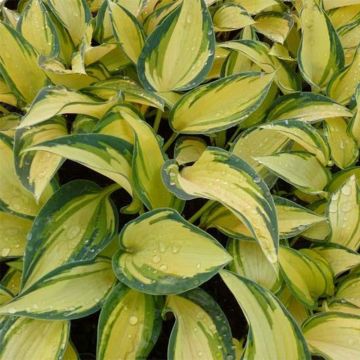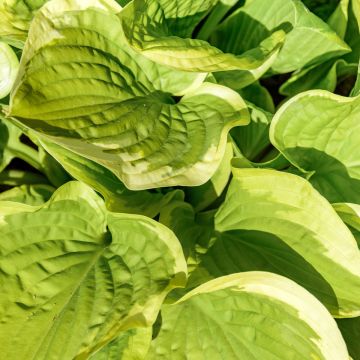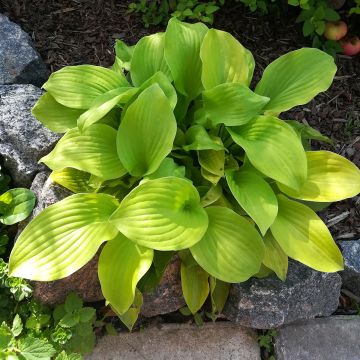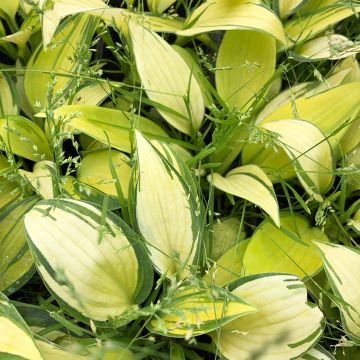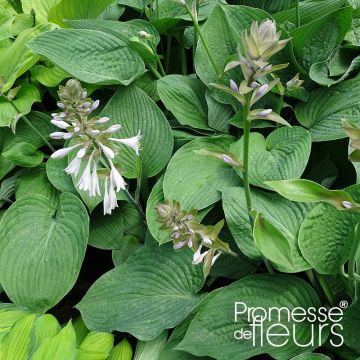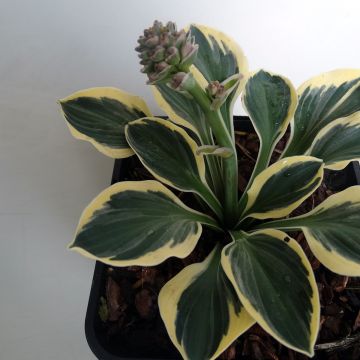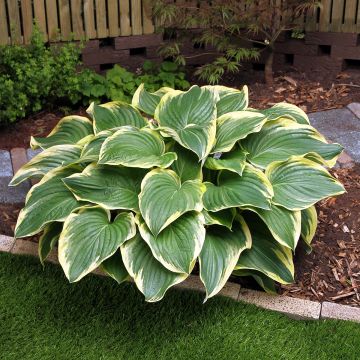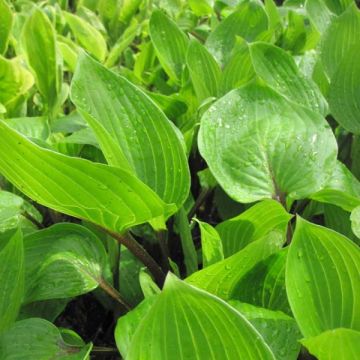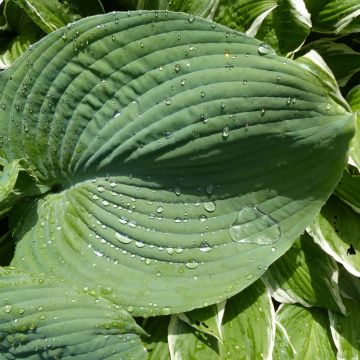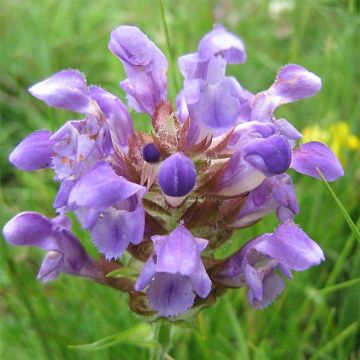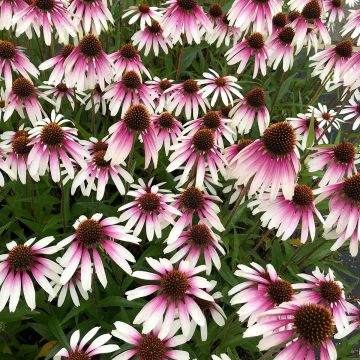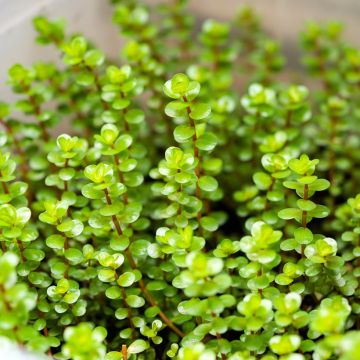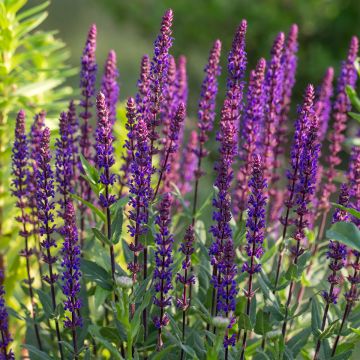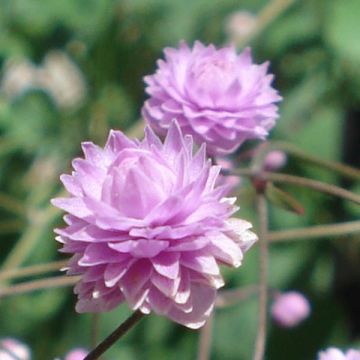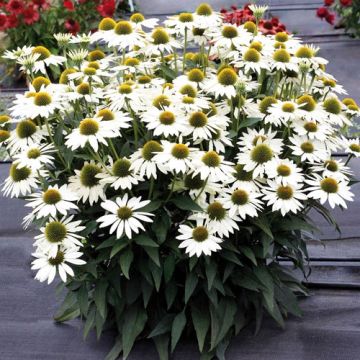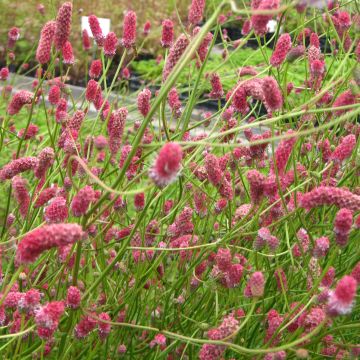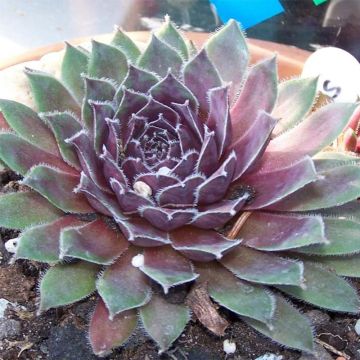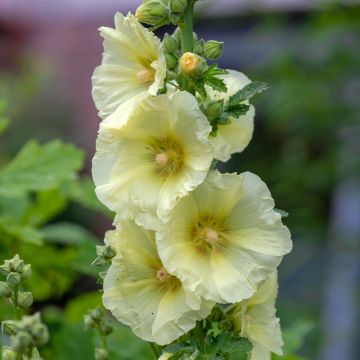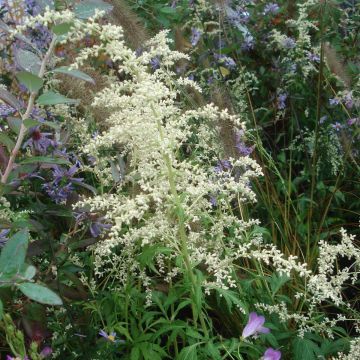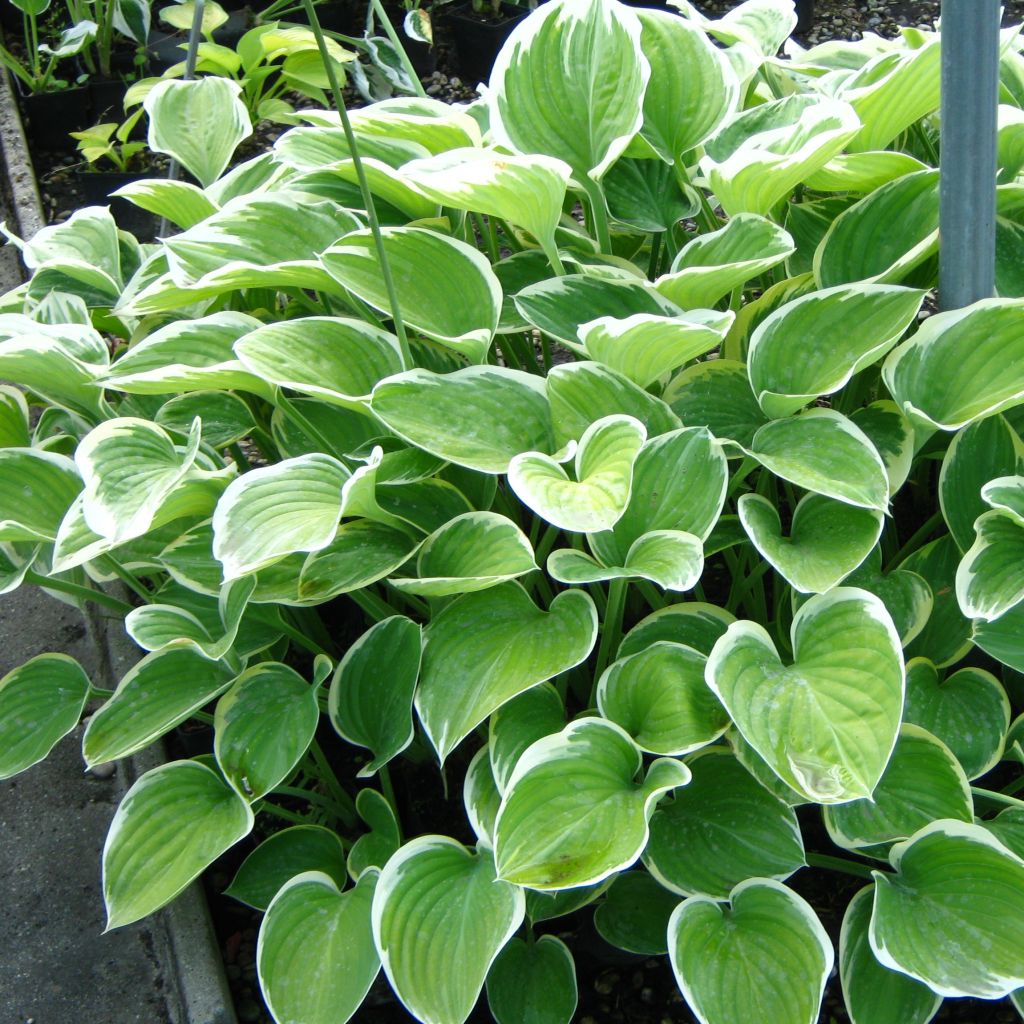

Hosta Cliffords Forest Fire
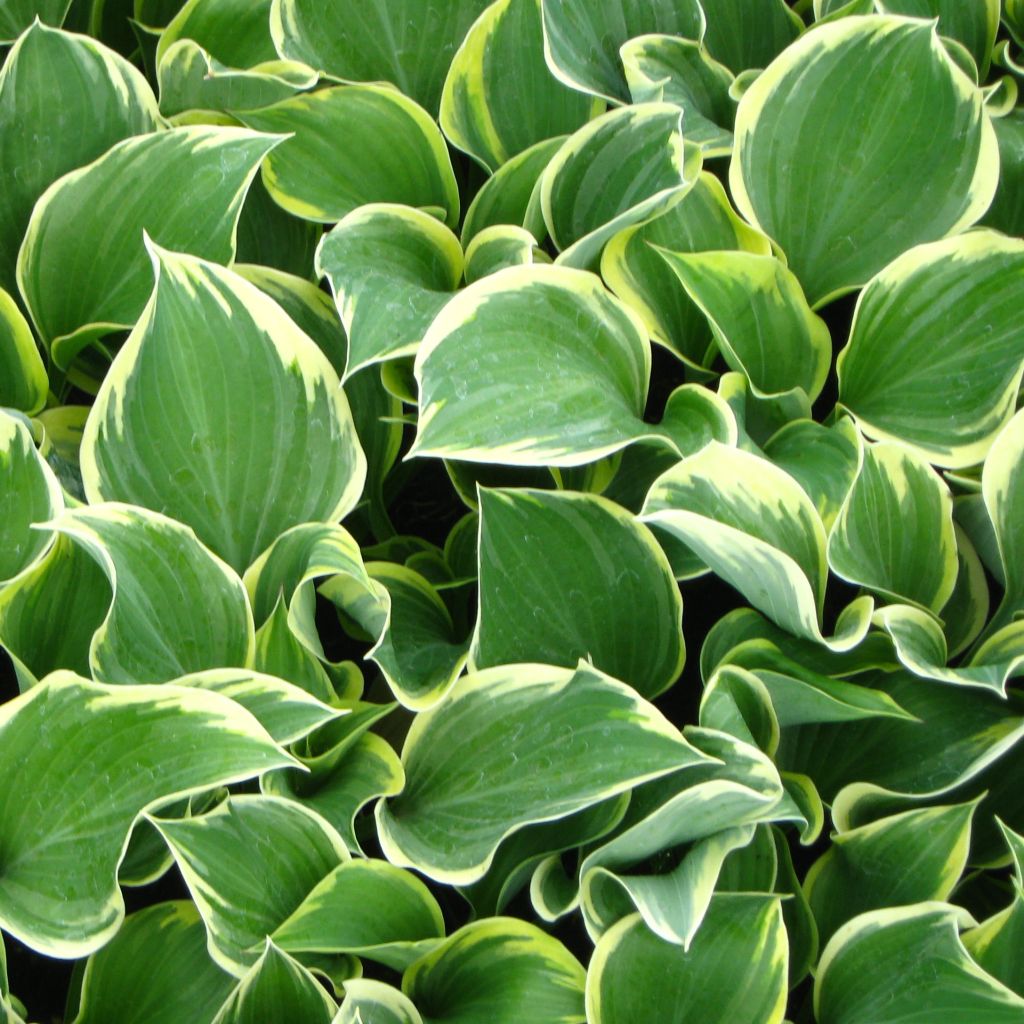

Hosta Cliffords Forest Fire
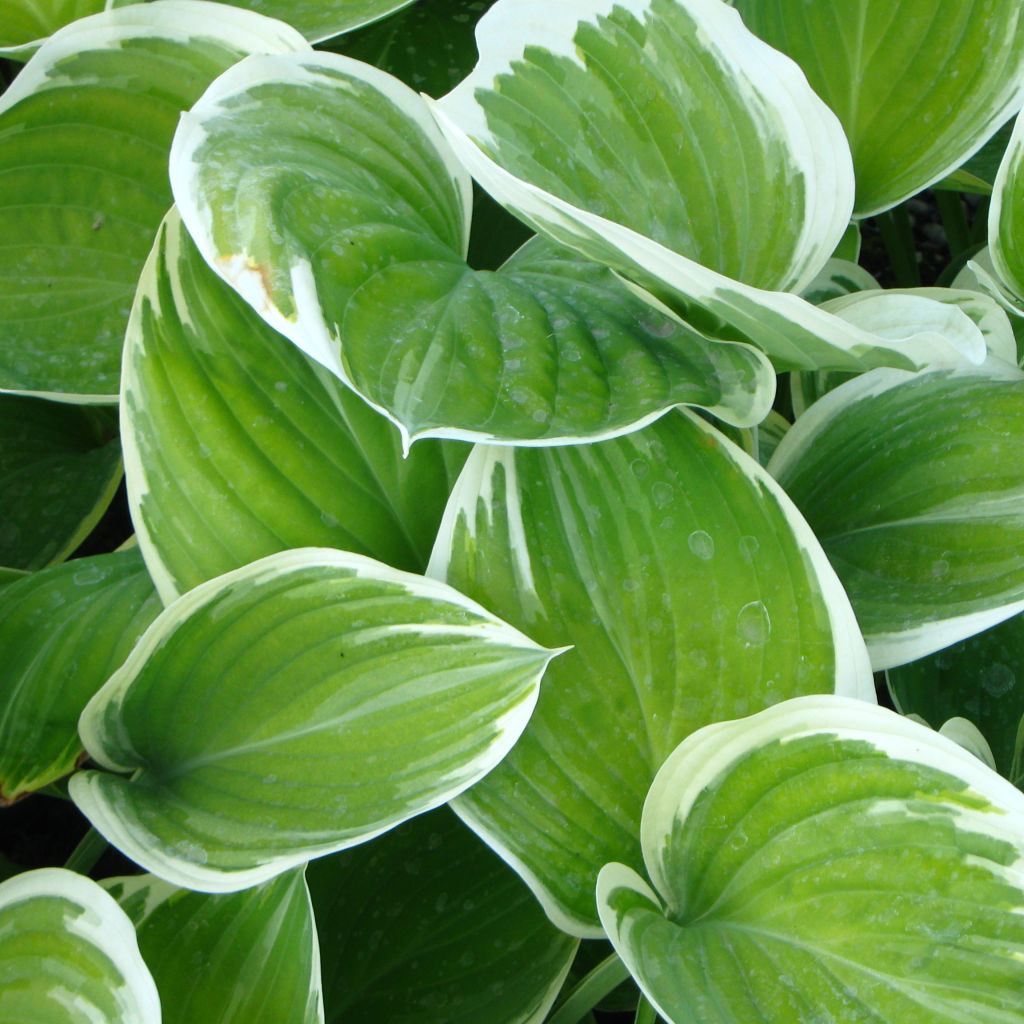

Hosta Cliffords Forest Fire
Hosta Cliffords Forest Fire
Hosta Clifford's Forest Fire
Plantain Lily, Funkia
Delivery and condition of the young plant impeccable. A bit disappointed because after checking online, and contrary to the photos on the website, the variegated foliage of this variety is more cream yellow than cream white as I had assumed from the photos. Hoping that this does not detract from the expected effect.
Guillaume, 07/03/2019
This item cannot be shipped to the selected country
Delivery charge from €5.90
More information
Delivery charge from €5.90
More information
Schedule delivery date,
and select date in basket
This plant carries a 12 months recovery warranty
More information
We guarantee the quality of our plants for a full growing cycle, and will replace at our expense any plant that fails to recover under normal climatic and planting conditions.
From €5.90 for pickup delivery and €6.90 for home delivery
Express home delivery from €8.90.
Does this plant fit my garden?
Set up your Plantfit profile →
Description
The Hosta 'Clifford's Forest Fire' displays broad foliage, closely resembling that of the 'Liberty' variety, but with finer margins along the edges of its leaf blades. The young heart-shaped leaves are glaucous-green to bluish in the centre, irregularly edged with chartreuse green. As summer arrives, the edges take on a pale blonde to cream hue, while light lavender bell-shaped spikes appear. This variety reaches a good size and eventually forms generous clumps with an upright and spreading habit, its thick foliage deterring slugs. It is robust, easy to grow and succeeds in moist soil, ideal for partial shade, and makes beautiful combinations with perennials, spring bulbs or even bushes.
This Hosta, or Funkia, is a completely hardy perennial, forming wide and spreading clumps from spring onwards. It belongs to the lily family or the hosta family. The plant, derived from the 'Sagae' hosta, will reach a height of 40 to 50 cm (16 to 20in) and 65 cm (26in) when flowering, spreading at least 50 cm (20in) after several years of cultivation. It forms a generous clump, wider than it is tall. It is a long-lived plant with large deciduous heart-shaped leaves, ending in a tiny pointed cilium, with visible veins. The lamina is thick and wrinkled, supple, and filled with water. The edges of the juvenile leaves change color and lighten when mature. This thick foliage is quite resistant to gastropod attacks. The flowering takes place in July-August, in the form of small pale lavender pendant bell-shaped flowers, clustered towards the top of the 65 cm (26in) tall peduncles.
The 'Clifford's Forest Fire' Hosta will associate well with many perennials in partial shade, such as astilbes, ferns, epimediums, and Claytonia sibirica, with which it forms beautiful colorful duos that require little maintenance. It will also look great alongside columbines and tall foxgloves or small violets. It can also be paired with semi-shade bushes such as Mexican orange blossoms, variegated hollies, and azaleas. All hostas grow well in pots and can remain in the same container for several years. Choose a special geranium potting soil to use during the growing season. As long as the foliage is not too dense, watering from the top of the pot is possible. Then place a saucer under the pot where you will pour water, keeping the level constant in summer.
Most species found in Western gardens have been introduced from Japan. Hostas are edible and are commonly known as 'urui' in Japan, where they are regularly consumed.
Hosta Cliffords Forest Fire in pictures
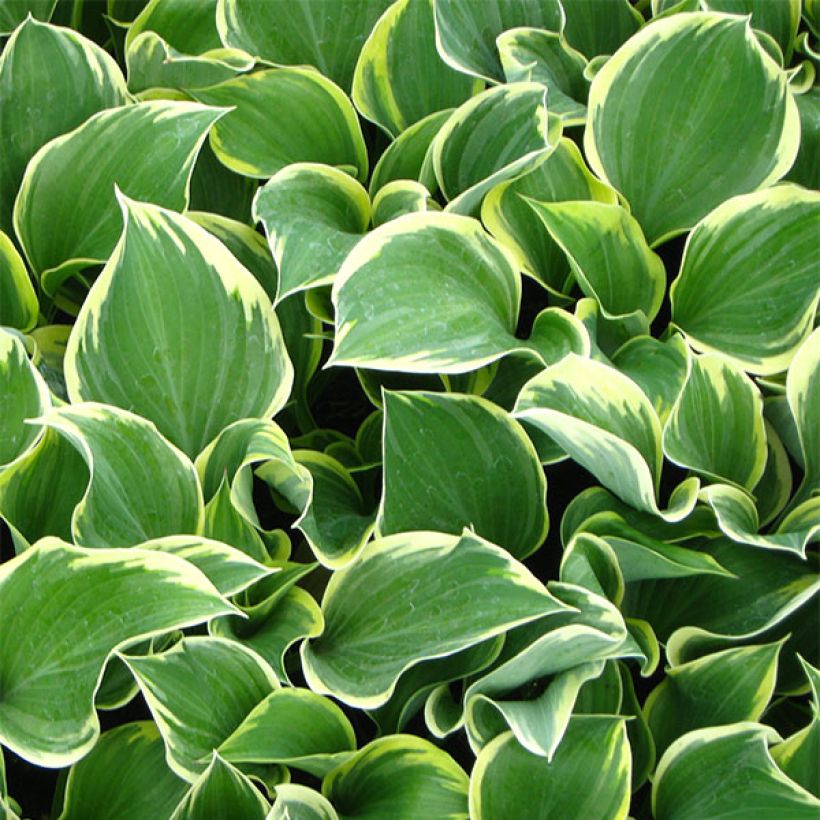

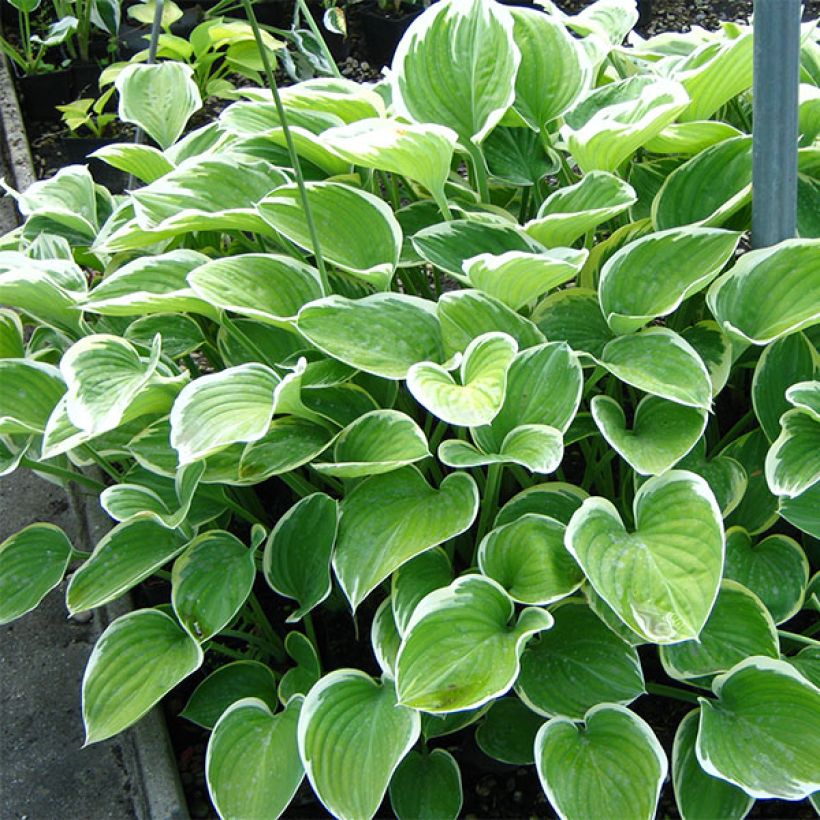

Flowering
Foliage
Plant habit
Botanical data
Hosta
Clifford's Forest Fire
Liliaceae - Hostaceae
Plantain Lily, Funkia
Cultivar or hybrid
Other Hostas A to Z
Planting and care
Hostas are planted in spring or autumn. They prefer a deep, rich, humus-bearing, loose soil, preferably neutral to acidic (at least low in limestone), and moist to wet throughout the year. Plant Hostas in partial shade or dappled shade and in a sheltered location away from strong winds.
Prepare a planting hole that is 20 cm (8in) x 20 cm (8in) x 20 cm (8in). If your soil is heavy, mix equal parts of compost with crumbled soil, partially backfill the hole, and place your potted plant so that the top of the root ball is covered with 3 cm (1in) of soil. Adding a slow-release fertiliser (dehydrated blood, horn powder) will nourish your plant during its rooting period without the risk of burning. Make sure to position the collar well above ground level. Firm the soil and water thoroughly to eliminate air pockets. If the weather is dry, you will need to water regularly for a few weeks to facilitate the establishment of your plant. Also water regularly in case of a dry summer.
With their common preference for moist areas, slugs and snails are never far from hostas. Even though blue or variegated hostas often have thicker and tougher foliage, which is less appealing to slugs, these plants must be protected from gastropods. Protect your Hostas by surrounding them with ferramol-based pellets (approved for Organic Agriculture), eggshells, coffee grounds, wood chips, or any dry and rough natural substance that repels them. Hedgehogs are the gardener's best allies in the fight against gastropods, as unlike chickens, they do not till the soil or attack the young green shoots of plants. Finally, some plants have a repulsive odour for slugs, such as wormwood and garlic.
Planting period
Intended location
Care
Summer flowering perennials
Haven't found what you were looking for?
Hardiness is the lowest winter temperature a plant can endure without suffering serious damage or even dying. However, hardiness is affected by location (a sheltered area, such as a patio), protection (winter cover) and soil type (hardiness is improved by well-drained soil).

Photo Sharing Terms & Conditions
In order to encourage gardeners to interact and share their experiences, Promesse de fleurs offers various media enabling content to be uploaded onto its Site - in particular via the ‘Photo sharing’ module.
The User agrees to refrain from:
- Posting any content that is illegal, prejudicial, insulting, racist, inciteful to hatred, revisionist, contrary to public decency, that infringes on privacy or on the privacy rights of third parties, in particular the publicity rights of persons and goods, intellectual property rights, or the right to privacy.
- Submitting content on behalf of a third party;
- Impersonate the identity of a third party and/or publish any personal information about a third party;
In general, the User undertakes to refrain from any unethical behaviour.
All Content (in particular text, comments, files, images, photos, videos, creative works, etc.), which may be subject to property or intellectual property rights, image or other private rights, shall remain the property of the User, subject to the limited rights granted by the terms of the licence granted by Promesse de fleurs as stated below. Users are at liberty to publish or not to publish such Content on the Site, notably via the ‘Photo Sharing’ facility, and accept that this Content shall be made public and freely accessible, notably on the Internet.
Users further acknowledge, undertake to have ,and guarantee that they hold all necessary rights and permissions to publish such material on the Site, in particular with regard to the legislation in force pertaining to any privacy, property, intellectual property, image, or contractual rights, or rights of any other nature. By publishing such Content on the Site, Users acknowledge accepting full liability as publishers of the Content within the meaning of the law, and grant Promesse de fleurs, free of charge, an inclusive, worldwide licence for the said Content for the entire duration of its publication, including all reproduction, representation, up/downloading, displaying, performing, transmission, and storage rights.
Users also grant permission for their name to be linked to the Content and accept that this link may not always be made available.
By engaging in posting material, Users consent to their Content becoming automatically accessible on the Internet, in particular on other sites and/or blogs and/or web pages of the Promesse de fleurs site, including in particular social pages and the Promesse de fleurs catalogue.
Users may secure the removal of entrusted content free of charge by issuing a simple request via our contact form.

































